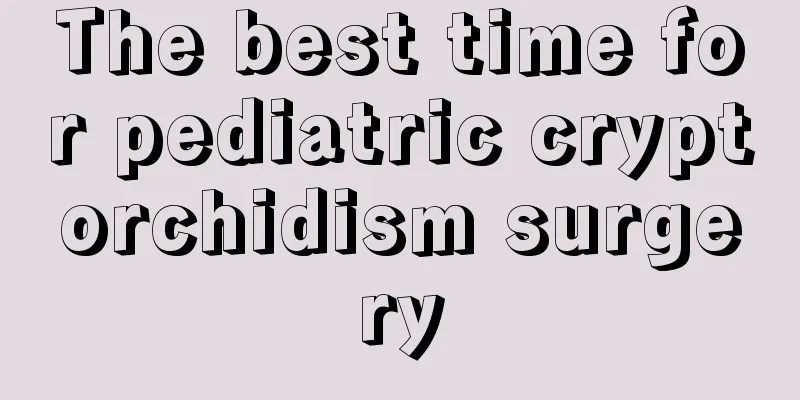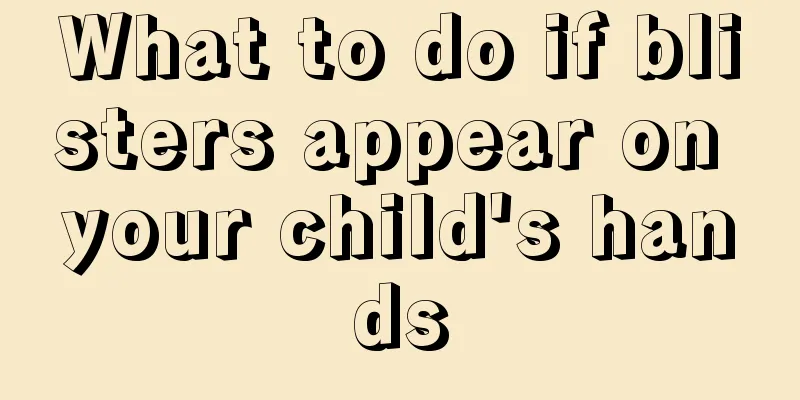The best time for pediatric cryptorchidism surgery

|
The problem of cryptorchidism in children is of great concern to parents, because cryptorchidism has a great impact on the reproductive development of children. In severe cases, it can cause fertility problems in children when they grow up. Therefore, it is very necessary to solve the problem of cryptorchidism in a timely manner, and the most effective method is surgery. Among them, the timing of the operation is a very critical factor. Let’s take a look at when is the best time for cryptorchidism surgery in children? Cryptorchidism is one of the most common congenital malformations of the urogenital system in children, with an incidence rate of approximately 1.0%-4.6% in newborns and up to 45% in premature infants. Delayed treatment or no treatment will result in subfertility and a high incidence of testicular cancer in adulthood. If cryptorchidism is discovered in the neonatal period, the testicles should be regularly observed to see if they have descended into the scrotum. If the testicles have not descended into the scrotum by 6 months of age, the chances of spontaneous descent are very small, and hormonal or surgical treatment should be considered. Studies have found that germ cells and supporting cells gradually disappear in testicles that have not descended for more than 12 months. Therefore, the best time for surgical treatment is 6-12 months, and no later than 18 months. The testicles may still grow after early testicular descent and fixation surgery, but if the surgery is performed after 18 months, the possibility of testicular recovery is very small. The older the patient with cryptorchidism is, the longer the testicles are in an abnormal position, the more serious the impact on testicular growth and development and spermatogenesis will be, and the rate of infertility and testicular malignancy will also increase significantly in the future. A normal boy should have one testicle on each side of the scrotum. If no testicle or only one testicle can be felt, it is called cryptorchidism. This is because during the development of the fetus, the testicles in the abdominal cavity are blocked when they descend, and the testicles cannot enter the scrotum. Generally, there is no discomfort, so it is easy for parents to ignore it and delay the treatment. Usually before the age of 6, there is no difference between normal and abnormally located (cryptorchid) testicles, but abnormally located testicles stop developing between the ages of 6 and 8, and this condition becomes irreversible after the age of 11. Even if the testicles are restored to the scrotum through surgery, they will no longer be able to produce sperm. Those with unilateral cryptorchidism may still have the possibility of fertility, but those with bilateral cryptorchidism will lose their fertility. Because the testicles need to stay in the scrotum which is lower than body temperature, the hidden testicles that have not descended into the scrotum are in the body temperature environment for a long time, which not only affects the production of sperm but is also very prone to cancer. |
<<: What to do if a four-year-old is constipated
>>: Symptoms of baby milk powder allergy
Recommend
Is it prickly heat or eczema if the baby has red spots on his body in summer?
Every summer, many babies will have many small re...
What's going on when a child has a fever and complains of a headache?
A child's fever means that the child's bo...
An eight-year-old girl has a lump in her breast
When a little girl is about ten years old, her bo...
What should I do if my two-month-old baby spits up?
For first-time mothers, taking care of a baby is ...
What to do if your child has a poor appetite
In life, as we get older, we will get married, ha...
How to clear throat for children
Many parents find that their children clear their...
How to treat tonsillitis in children?
Tonsillitis in children is a common upper respira...
What causes pain in the left lower abdomen in children?
Once a child has abdominal pain, parents often pa...
How big is a baby's stomach?
Sometimes babies spit up milk, sometimes because ...
What should I do if my child has an incarcerated hernia?
When parents encounter hernia in their children, ...
What causes nosebleeds in children?
Children's noses always bleed, which makes ma...
How to care for a ten-year-old child who has lost teeth
For many children, they need to replace their dec...
Prevention methods for newborns with excessive drooling
After a newborn is born, you will gradually find ...
Can children climb mountains?
Hiking is a great outdoor activity for adults, bu...
Can a one-year-old baby eat pomegranate?
Pomegranate is very nutritious, containing rich v...









